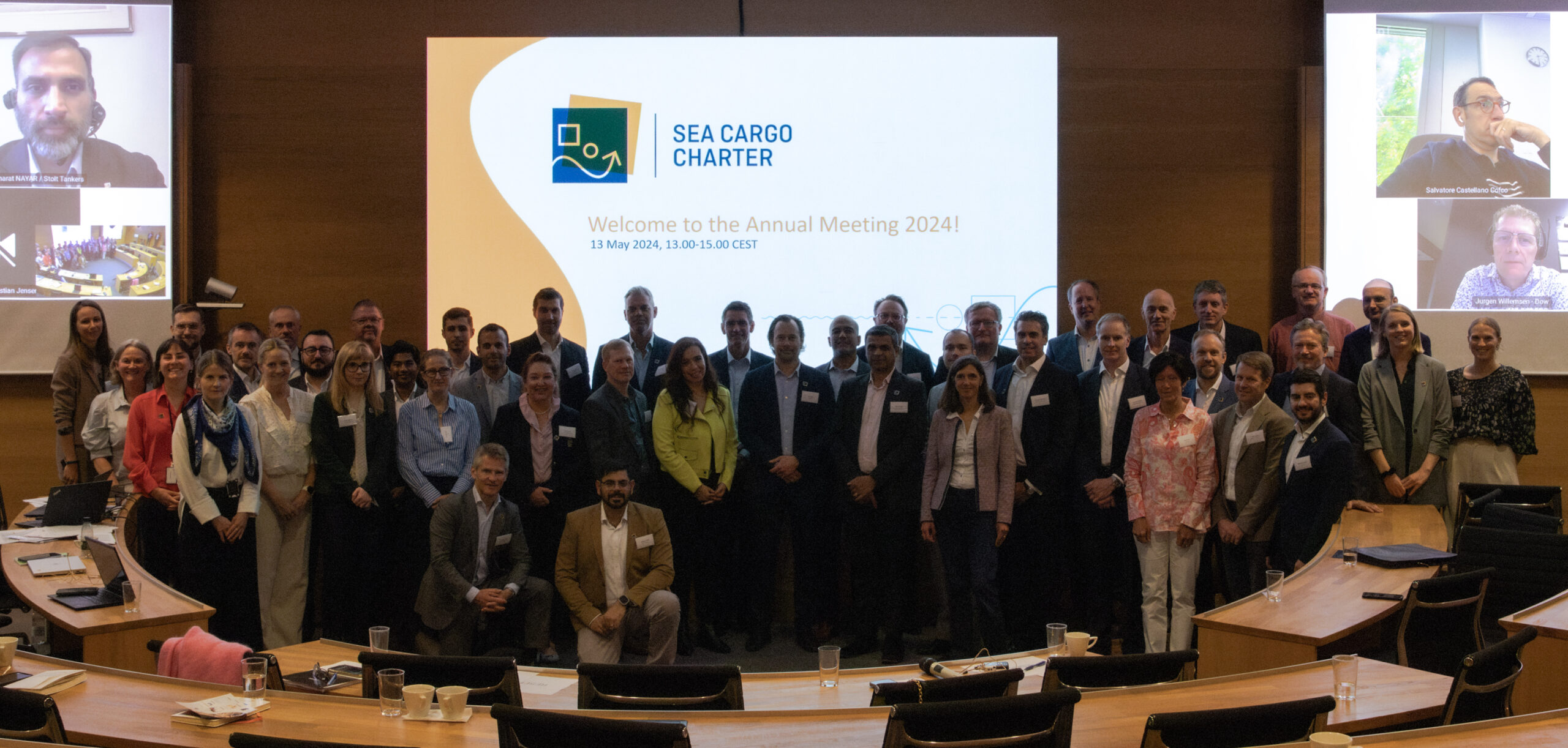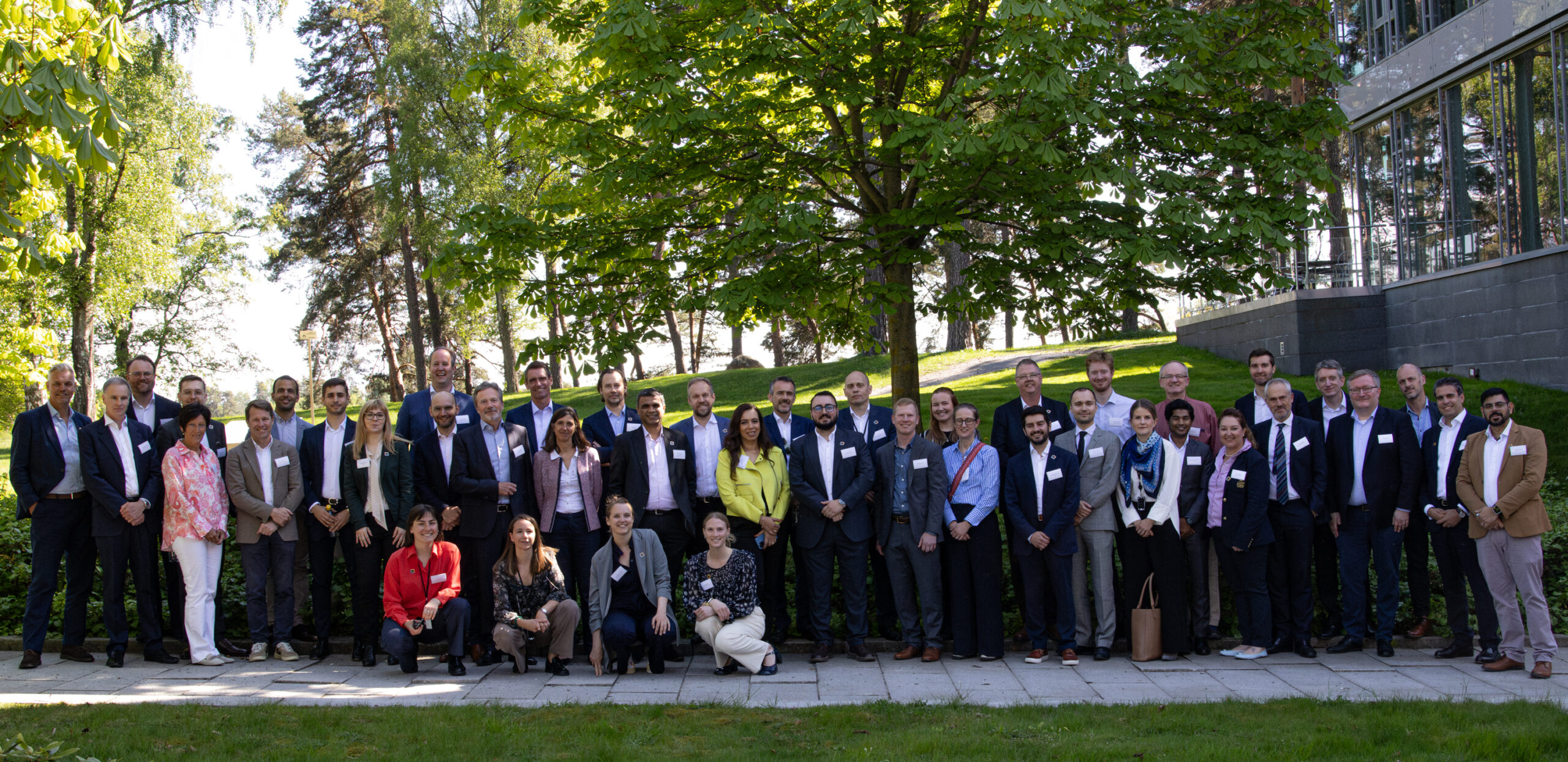Oslo, Norway, 14 May 2024 – Yesterday, the Sea Cargo Charter held its fourth annual meeting at Klaveness Combination Carriers’ offices in Oslo, Norway. Co-hosted by Equinor, and chaired by Trafigura and Cargill, signatories gathered a few weeks before the publication of the Sea Cargo Charter’s latest annual disclosure report on 13 June. The agenda centred on discussing the latest developments within the Sea Cargo Charter Association while fostering dialogue on shared challenges and opportunities for the shipping industry’s decarbonisation efforts. Decisions were taken on governance, finances and reinforced reporting modalities. Other topics discussed included emissions setting, operational efficiency, and upcoming IMO policy measures.
“Our Annual Meeting arrives at a critical moment. Our signatories are poised to report against the latest and more ambitious IMO targets for the first time,” said Rasmus Bach Nielsen, Sea Cargo Charter Chair and Global Head of Fuel Decarbonisation at Trafigura. “This significant step stems from a collective decision made a few months after the IMO’s Revised (GHG) Strategy, further demonstrating our commitment to aligning with evolving environmental standards.”
While the IMO is still to adopt key measures for implementing the renewed and significantly higher ambitions in its revised strategy, the Sea Cargo Charter signatories decided to update their decarbonisation trajectories to match the new ambition of a 100% reduction of emissions from international shipping by 2050 with intermediary checkpoints in 2030 and 2040 and report on a well-to-wake basis, taking into account the full-lifecycle approach to emissions from fuels.
As a result, signatories are measuring their emissions intensity this year against two trajectories: the ‘minimum’ and the ‘striving’ trajectories. This is significantly more ambitious than the previous Sea Cargo Charter reporting measuring against the IMO’s initial GHG strategy, which aimed for a 50% reduction in emissions from international shipping in 2050 compared to 2008 levels.
To further enhance its impact, the Sea Cargo Charter recently expanded its scope to fully allow shipowners to join the Association and monitor emissions against a shared baseline and common methodology with charterers.
‘As an industry, we have proven that collaboration is of utmost importance. The Sea Cargo Charter is no exception, serving as a platform for shipowners & charterers to collaborate and cooperate in monitoring emissions’ said Sea Cargo Charter Vice Chair Eman Abdalla, Global Operations & Supply Chain Director at Cargill Ocean Transportation. “This expansion reflects our commitment to fostering greater collaboration and accountability across the maritime industry in our collective pursuit of decarbonisation.”
Signatories made significant decisions at this year’s Annual Meeting in Oslo regarding reporting and governance, showcasing the ambition of its members to amplify impact and enhance transparency on shipping emissions. Signatories notably decided upon the following:
- To gradually increase the reporting requirements by making it mandatory for charterers and shipowners who are signatories to report any voyage unless they time-charter out a vessel. This constitutes an increase in the number of reporting segments mandatory for signatories and will apply for data collected as of 2025 and reported in 2026.
- To increase the level of information to be disclosed publicly in next year’s SCC Annual Disclosure Report by adding the reporting rate of each signatory and whether their data was verified. Therefore, it brings more transparency and incentivises complete reporting and verification accuracy.
Steering Committee elections: Signatories elected Copenhagen Commercial Platform (CCP) as a new member and re-elected Bunge and Chevron as members of their Steering Committee.
Christian Bonfils, CEO of Copenhagen Commercial Platform (CCP), will represent CCP in the SteerCo. CCP has been a Sea Cargo Charter signatory since 2022 : “We are pleased to be elected to the Steering Committee. The Sea Cargo Charter plays an important role in decarbonising the maritime industry,” said Christian Bonfils. “We look forward to being more active and contributing with our expertise.”
Marcio Valentim Moura (Global Logistics Director) and Matt Turns (General Manager for Strategy & Business Performance) are entering their second mandate for Bunge and Chevron, respectively, for the next two years.
The Sea Cargo Charter Steering Committee is now composed of 15 members: ADM, Anglo American, Bunge, Cargill Ocean Transportation, Chevron, Copenhagen Commercial Platform, Dow, Equinor, Louis Dreyfus Company, Norden, Shell, Torvard Klaveness, TotalEnergies, Trafigura Maritime Logistics, Viterra. More information about the Steering Committee is available here.
Sea Cargo Charter Chair Rasmus Bach Nielsen (Trafigura), Vice-Chair Eman Abdallah (Cargill), and Treasurer Justine Clark (Shell) are in the middle of their ongoing terms.

About the Sea Cargo Charter
The Sea Cargo Charter is a global framework for assessing and disclosing the climate alignment of chartering activities. It establishes a common, global baseline to quantitatively assess and disclose whether chartering activities are in line with climate goals set by the UN maritime agency, the International Maritime Organization (IMO). The IMO’s initial greenhouse gas strategy prescribed that international shipping must reduce its total annual emissions by at least 50% of 2008 levels by 2050, whilst pursuing efforts towards phasing them out as soon as possible in this century. The IMO revised greenhouse gas (GHG) strategy adopted during MEPC80 in July 2023 sets a new ambition to reach net-zero GHG emissions from international shipping by or around, i.e. close to, 2050. The Sea Cargo Charter has recently aligned its ambition with these latest goals by agreeing to report in 2024 and onwards against (i) a full decarbonisation target in 2050, (ii) interim targets in 2030 and 2040 and (iii) the consideration of lifecycle emissions of fuels including further greenhouse gas (GHG) species.
The Sea Cargo Charter is one of three initiatives based on the same four Principles and developed with the Global Maritime Forum. Together with the Poseidon Principles and the Poseidon Principles for Marine Insurance, they share a common objective: fostering transparency on emissions reporting with the aim of contributing to reducing carbon emissions. Learn more.
Media contact: Molly P. Hannon, Senior Communications Manager
M: +45 5376 6787
E: mph@globalmaritimeforum.org

